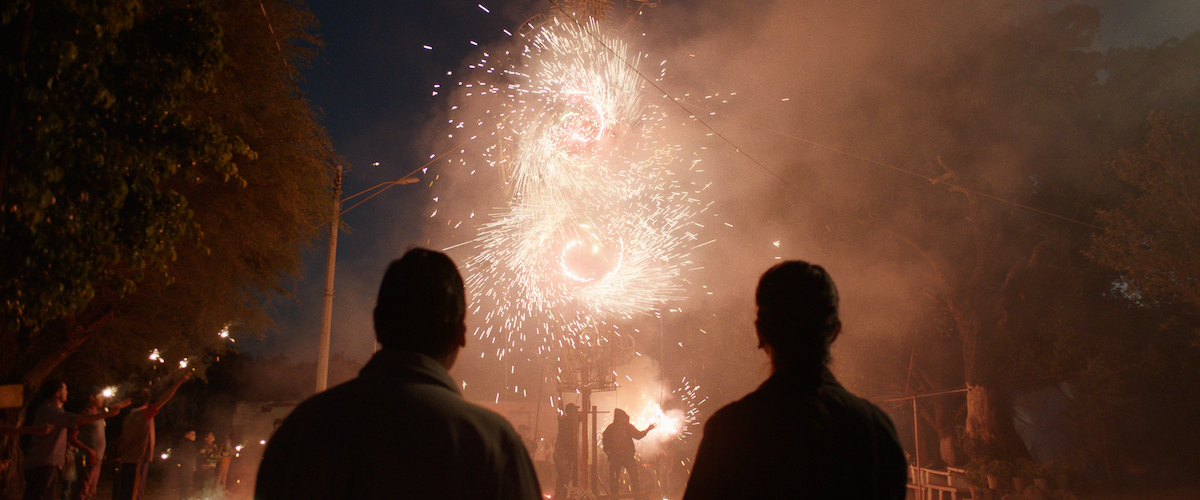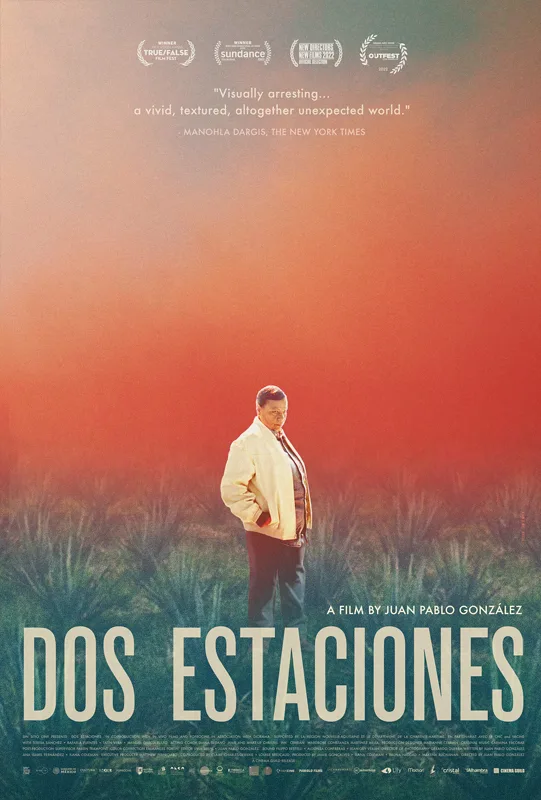There’s a sublime sequence that occurs about midway through Juan Pablo González’s narrative debut feature, “Dos Estaciones,” that pivots from the film’s central storyline to follow another inhabitant of Atotonilco el Alto, Jalisco, the Mexican community in which the picture is set and where its director was born and raised. The character, a transgender hairdresser named Tatín, appears to be not all that far removed from Tatín Vera, the woman who plays her. González, who has a background in both directing and lensing documentaries, populates his film with nonprofessional actors from the region who upend the tired tropes of conservatism often associated with it. We see Vera mingling with customers at the actual salon where she works and appears to be embraced as an accepted member of her town. After making love with a man she met at a local casino, they drink in the surrounding landscape, which includes a hill that she dubs “the sleeping lady” because of its uncanny resemblance to a face in silhouette.
This haunting image is one of many masterfully lensed by Gerardo Guerro that illuminate how the land in Atotonilco el Alto is itself a living breathing entity that is inextricably linked to the generations of people who have built their lives there. “Dos Estaciones,” which translates as “Two Seasons,” is named after the tequila factory where the majority of the film is set, and which is run in real life by the immediate family of González, whose own parents were tequila ranchers. The opening moments show ranchers working in the fields who are framed as if they are at one with the environment, not unlike the indigenous tribe in Malick’s “The New World.” Veteran actress Teresa Sánchez deservedly won a Special Jury Prize at Sundance for her performance as María, the owner of the factory whose practiced skill in withholding her emotions makes her an inherently fascinating cinematic subject. A subtle smile will always be more intriguing than a blatant one, which is why the Mona Lisa continues to captivate onlookers from around the globe. As soon as she sets her eyes on Rafaela (Rafaela Fuentes), a pretty young woman whom she hires as her new factory manager, flickers of desire start to break through her stern persona, yet never in a way that derails her focus on rescuing her once thriving plant, which now stands as the only one in the area not absorbed by foreign corporations.
In the very few times that non-diegetic music is heard throughout the picture, composer Carmina Escobar creates a strikingly eerie mood akin to the György Ligeti selections in Kubrick’s “2001: A Space Odyssey,” particularly the whispering vocalists who accompany María’s discreet visit to the factory of her American rivals. Her resentment towards the invasive company that has cost her vital workers she couldn’t pay a full salary, as a result of her factory’s financial struggles, is noted in two key shots of her eyes which seethe with rage while reflected in the rearview mirror of her truck. The ever-present threat of competition coupled with an encroaching plague would be enough to drain the confidence of most people in her position, but María is a force of nature in her own right, which is evident as soon as she materializes on the screen. Guerro’s camera watches as she repeatedly attempts to start her sputtering truck without success, and then follows her as she resolves to walk down the path to her factory instead. This recurring angle on María’s back as she charges toward her goal by any means necessary ultimately bookends the picture, evoking the loneliness and indomitable strength of a woman who is single-handedly carrying not only the economic future but cultural pride of her community on her shoulders.
It is Sánchez’s mesmerizing performance, first and foremost, that anchors the entire movie. Her strikingly androgynous appearance makes her not stand out from her primarily male peers, and the script co-authored by Ilana Coleman, González and his wife, Ana Isabel Fernández, does a superb job of gauging how María goes about expressing her feelings for Rafaela while keeping them unspoken, aside from when she compliments her on her slender physique. When her face finally breaks out into a euphoric toothy grin, it exudes the rambunctiousness of an adolescent as she does donuts in a rented truck, gleefully kicking up clouds of dirt before picking up Rafaela. After a sudden natural disaster forces the factory to temporarily shut down, Rafaela—in a wonderfully charged moment—places her hand on her boss’ shoulder, only for María to tenderly yet firmly remove it, affirming that she cannot fully act upon her attraction. As González says in the film’s production notes, “We go where María goes and, at this point in her life, that is as far as she goes.”
“Dos Estaciones” is an angry film, and rightfully so, but it is also an achingly human and disarmingly beautiful one. María is never more relaxed than while receiving a massage at Tatín’s salon, which places her in a meditative reverie not unlike the one we find ourselves in throughout the picture, which moves at a measured but never less than wholly transfixing pace. The film’s loveliest moment takes the form of a literal calm before the storm as we peer through a doorway at María dancing with Rafaela, who asks how she learned such moves. “Just looking,” María replies. Indeed, González has the keen eye of a documentarian that can perceive the very details that normally escape one’s gaze. His film demonstrates just how much we can glean by slowing down to savor the sights around us and those who inhabit them. To take the time to look at the world through the eyes of others rather than be limited by our own perspective. To honor the history of a place and how it lives on through those who currently dwell there. And to pay attention to what remains unsaid in the chasms between words. The more one does this while watching “Dos Estaciones,” the more rewarding it becomes.




















